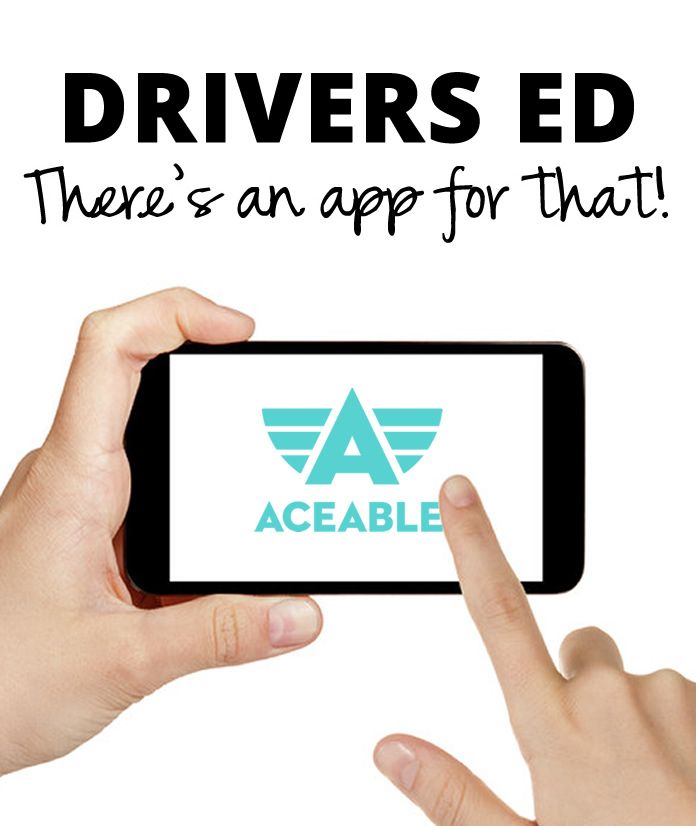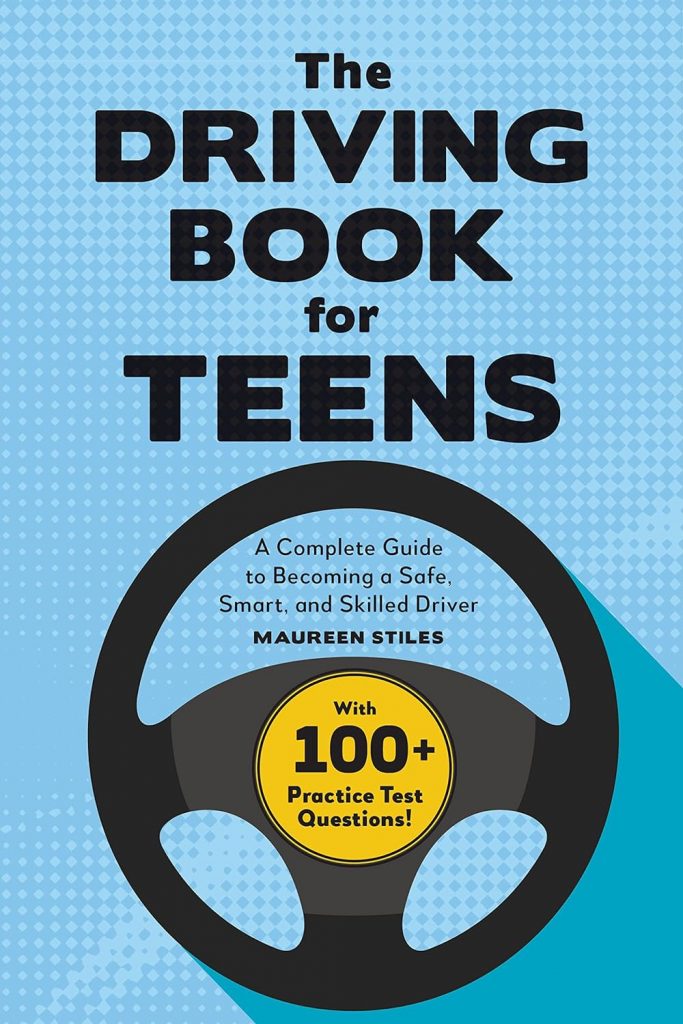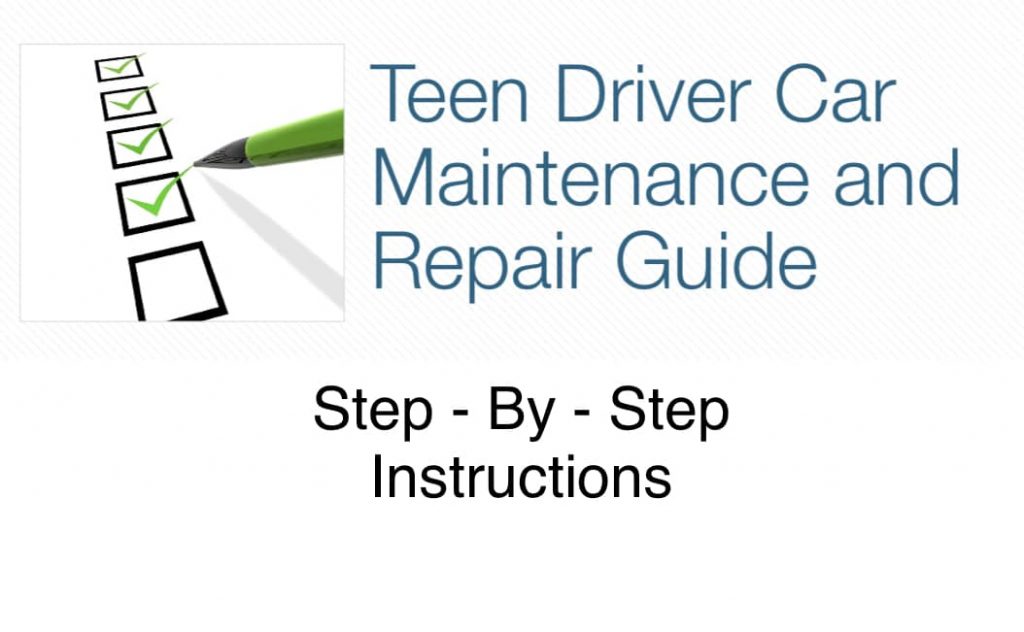053.
Teen Independence and Life Skills including Driving
Fostering independence in homeschool teens is a pivotal aspect of their educational journey. As they navigate their academic pursuits outside the conventional classroom setting, they have the many opportunities to develop self-reliance and a strong sense of responsibility. Today we are talking about helping your teenager gain independence and life skills including steps to becoming a driver making safe decisions on and off the road.
This is the 10th episode in our HIGH SCHOOL SERIES
Episode 053:
TWO WAYS TO LISTEN TO THIS EPISODE:
1. Click PLAY Button Above ^^ to listen here.
2. OR Listen on your favorite podcast platform:

Apple – Spotify – Google Play – Amazon – Others
Brand New to Homeschooling?
GETTING START PAGE >>
Kindergarten Page >>
High School Series >>
Scroll down for this week’s FREEBIE:
Teen Auto Maintenance & Repair Lesson Guide (pdf)
Show Notes
Homeschooling not only offers a unique and personalized education, but also fosters a strong sense of independence in our teenagers. As homeschooled teens navigate their academic pursuits outside the conventional classroom setting, they have the opportunity to develop self-reliance and a strong sense of responsibility. Homeschooling takes a fraction of time compared to a traditional school day and combined with newfound independence, teens are able to explore their interests and shape their own learning experiences, preparing them for the challenges of life in an empowering way. In today’s episode, we’re talking about teen independence and how to make sure your teenager learns all those essential life skills including driving before leaving home.
Fostering independence in homeschool teens is a pivotal aspect of their educational journey. The unique nature of homeschooling provides a safe space for teens to develop essential life skills, self-motivation, and autonomy. Parents can empower homeschool teens by allowing them to take ownership of their learning, encouraging them to set goals and manage their time, and providing a diverse array of learning opportunities. Also, engaging in open and constructive communication with your teen, as well as offering guidance and support rather than rigid control, can nurture their self-reliance. This emphasis on independence not only equips them with the tools they need to succeed academically but also prepares them for the challenges and opportunities they will encounter in life.
How do you foster independence in your teenagers? (5:25)
The teen years are a time of personal growth. Teenagers typically feel an intense desire to establish an identity for themselves apart from their family. This often begins in middle school. While this sometimes manifests itself in expressions of teenage “rebellion”, it doesn’t have to be like that. Children should be encouraged to learn about themselves, practice introspection, and grow with intention. Guiding them towards independence is crucial for their personal growth and preparing them for adulthood.
As high school draws to a close, it is a time to let your children spread their wings. Let them dip their toes into the water of the adult world. Your active homeschooling might be winding down, but you are always going to be mentoring your child, especially as they start dabbling into adulthood. The more supported your child feels in this regard, the more successful they will be—intellectually, professionally, and emotionally.
How do we do that? For one, allow your teenager to make age-appropriate decisions. This might include choices about clothing, hair, extracurricular activities, or their own schedules. You want to provide guidance, but let them have the final say in non-critical matters. Choose your battles!
Assign age-appropriate household chores and self-care tasks. This teaches them to take care of their living environment and personal needs. Hygiene is super important- taking care of your hair and skin and teeth is something you’ve been working on all along, but as they get older there may be puberty related challenges- body odor, greasy hair from increased oil production, acne. Make sure you are sharing products and information about these things in a supportive way.
When your teenager faces challenges or dilemmas, guide them through the problem-solving process. You can ask open-ended questions to help them analyze the situation and encourage them to make the decision. Establish clear but reasonable rules and guidelines in your home. This helps them understand the importance of rules and boundaries in society. Teach them to speak up for themselves and communicate their needs and concerns effectively, whether it’s with teachers, peers, or adults. Be sure to foster open and honest communication. Make sure they know they can discuss their thoughts, feelings, and concerns with you without judgment.
It’s also really important to teach them how to manage their time effectively. Encourage them to create their own schedules, set goals, and prioritize tasks. Allow them to take ownership of their education by completing assignments, studying for tests, and managing their own academic responsibilities. And remember, they are still learning, so be sure to offer support when needed. Don’t just assume that you need to tell them one time and you’ll never have to tell them again.
Support their interests and hobbies, whether it’s playing a musical instrument, pursuing a sport, or engaging in creative activities. This helps them develop passions and skills on their own. Encourage them to explore their interests independently, even if it means self-directed learning outside of formal education. Provide access to resources and encourage reading, research, and curiosity. Encourage volunteer work or even a part-time job to help them gain real-world experience, build their resume, and understand the responsibilities that come with employment. Download your FREE Extracurricular and Volunteer Workbook.
Be a role model by demonstrating independence and responsible decision-making in your own life. Teens often learn by example. Fostering independence will be a gradual process, and it’s essential to strike a balance between providing guidance and allowing them to learn from their experiences, including making mistakes. Encourage them to take responsibility for their actions and to learn from both successes and failures. Remember Einstein’s quote, “If you’ve never failed, you’ve never tried anything new.”
How do I teach my teenager to drive? (11:20)
This is when things start getting real! Learning to drive is a huge milestone in a teenager’s journey towards independence. It marks the transition from relying on parents for transportation to having the freedom to explore the world on their own terms. The ability to get behind the wheel not only opens up new opportunities but also comes with profound responsibilities. For many teens, it’s a rite of passage that symbolizes their burgeoning adulthood, offering a taste of self-reliance.So, Let’s talk about the significance of learning to drive in the context of teen independence, as well as the essential skills and steps required to help them become safe and responsible drivers.
BTW, Some kids don’t feel the need to learn to drive right away- I was itching to get my license the minute I turned 16. But with uber and social media, a lot of kids today choose to wait. My wise friend once told me though that she’d rather her kids make big mistakes with her car and on her insurance. She didn’t want their beginning driving experience to be at 18 while they are also navigating adult life and maybe a new city, college, etc. Some kids, on the other hand, are eager to drive and start Drivers Ed at 14 to complete the course right when they turn 15. That can give you a little comfort to know that they would have an entire year with a learners permit to practice under your watch.

Aceable is the most effective (and least expensive) Driver’s Ed for Homeschoolers!
Preparing your teen for driving involves a combination of educational, practical, and safety steps to ensure they are well-equipped to handle the responsibilities of being a safe and responsible driver. First, you need enroll your teen in a state-approved driver’s education course. There are often several options for this. Here, we can use an independent driving school, or you can do a parent self-taught course, like Aceable. These courses cover essential traffic laws, road safety, and often include hands-on driving practice.
Whichever you choose, your teenager should thoroughly read and understand their state’s driver’s manual. It covers the specific rules and regulations they need to know to pass their written test. And these tests are not very hard and everything they will need to know will be taught in the course. A lot of it is common sense. Don’t forget to get your New Driver Magnets! Also, help your teen study and pass their test with these Road Sign Flash Cards.

Ensure your teen meets the age and educational requirements to obtain a learner’s permit and a driver’s license in your state. A trip to the DMV is always an adventure. Have them help you gather up all the identification and information you will need. This will be a great lesson in patience and bureaucracy. If you have to wait for a really long time, also make sure your teenager notes how awful this is so that it encourages them to never lose their ID.
Once they get their learner’s permit, it’s time to start practicing. Start with parking lots and quiet residential streets. Then gradually progress to busier roads. You also want to be sure to provide opportunities for them to practice various driving scenarios and conditions. Spend time discussing and demonstrating defensive driving techniques, including how to anticipate and react to potential hazards. Spend a significant amount of time supervising their driving to help them gain experience and confidence behind the wheel. Teach them how to drive at night and in adverse weather conditions, like rain, snow, and fog. Emphasize the importance of obeying traffic laws, using seat belts, avoiding distractions, and never driving under the influence of drugs or alcohol – or even riding passenger with someone under the influence. Uber gift cards are a great gift for new graduates!
Teach your kids basic auto maintenance like checking tire pressure and oil, and performing routine safety checks.

Many states have a graduated licensing program that includes restrictions for new drivers, such as limits on nighttime driving and the number of passengers. Ensure your teen complies with these restrictions. Here there are rules about how many unrelated people are allowed in the car, too. You may have some personal family rules regarding new drivers.
You can include your teen on your auto insurance policy and explain the importance of safe driving habits in keeping insurance rates manageable. This varies from state to state- you don’t have to do that here until they are licensed so you usually have a free pass during the learner permit time. This can be so expensive!
If they need to, have them take practice written and driving tests to help them prepare for the actual exams. We did the driving test through a local independent school- they have a youtube video of the driving test so we went and practiced it. And lots of parallel parking!
It’s important that they know what to do in case of an accident, breakdown, or other emergency situation so be sure to go over all of that with them. Test out how empty your tank of gas really is when it’s on E. Show them how to call roadside assistance if you have it.E doesn’t mean enough!
Some families may consider creating a written agreement that outlines your expectations and rules for your teen’s driving, including curfews, passenger restrictions, and consequences for breaking the rules.
They’ve been driving around with you their entire life and learning from you.Be sure that you’re a positive role model by practicing safe and responsible driving habits yourself. Your actions can significantly influence your teen’s behavior behind the wheel. Do you text and drive? There’s a good chance that they will too. Kids are always watching. You can help your teenager become a competent, responsible, and safe driver, ensuring they are well-prepared for the challenges of the road.
Even after taking driver’s ed and passing that dreaded road test, there are so many things new drivers need to learn about the practical aspects of driving that will only come from experience. Handing over the keys is a traumatic rite of passage for parents, and they will sleep better knowing that The Driving Book is in their teens’ glove compartments. Covering virtually every scenario a new driver may face, from changing a tire to negotiating privileges with parents to handling a car in bad weather, Karen Gravelle helps teen drivers navigate through tricky new territory.
How do we teach essential life skills? (22:34)
Have you ever seen people online complaining about “adulting”? The term adulting has become a catch-all phrase describing the tasks and responsibilities characteristic of adulthood. The latter years of high school are a great time to introduce your child to some of the skills a person needs to be a competent, functional adult.
And really, you’ve been teaching them life skills all along. But now it’s time to step it up. Now it’s time to teach life skills like opening a bank account, home and auto maintenance, the basics of tax preparation, filling out a FAFSA form for college, how to fill out a job application and talk to prospective employers. These sorts of skills are the things a child should learn as they transition into adulthood. They aren’t all about job skills or higher education, but just about navigating the adult world in general. This is one of those things where Homeschool teens really have an advantage. People often complain that these skills are not taught in school – well, they are taught in my school! And you can teach them in your school, too.
Teaching important life skills to homeschooled teenagers is a critical part of their education. These skills equip them for independence, self-reliance, and success in various aspects of life. Here are some essential life skills to teach homeschooled teenagers:
Financial Literacy
Teach them the basics of personal finance, budgeting, saving, investing, and managing money. You can cover topics like understanding credit, taxes, how to make informed financial decisions, and how to improve and maintain your credit score!

This system was invaluable to me as I taught my kids about budgeting and learning how to manage money. If you’ve never heard of it, I really encourage you to teach them this essential life skill.
Time Management and Organization
We’ve talked about this a lot in other episodes, study skills fall in this category, too. Help them develop effective time management skills, including setting goals, prioritizing tasks, and creating schedules. This skill is crucial for academic success and managing responsibilities. We want them to know how to learn new skills and how to research information critically. Also, having confidence in their ability to learn new things. Taking notes and independent learning is so important.
Communication Skills
Teach effective verbal and written communication, including active listening, public speaking, and how to write emails and formal documents. Using technology – we live in a tech world. I get it you want to restrict but learn how to use the tech around us, typing, making presentations, how things work, etc.
Teach them how to stand up for themselves and be a self advocate. Talk about the importance of boundaries and consent. We talked about this in our recent high school episode about High School Socialization Friendships, and Dating.
Critical Thinking
Encourage them to think critically, analyze information, solve problems, and make decisions based on evidence and logic. Problem solving, recognizing fallacies, debating properly, how to recognize propaganda.
Life skills form the foundation of the future you’ve always dreamed of and admired. While learning and developing these skills is a continuous process that never ends, the bulk of it occurs during your teen years. Essential Life Skills For Teens: 13 Different Ways To Use Your Critical Thinking, Manage Your Time Better, Set Your Smart Goals, And Navigate Social Media Safely is a guide designed to help equip teenagers with the tools they need to maximize their potential and enjoy a fulfilling life.
Self-Care and Well-Being
Instill the importance of physical and mental health. Teach them about nutrition, exercise, stress management, and the ability to seek help when needed. Teach them about basic first aid, how to learn where to find information, survival skills-such as identifying plants, how to tell time and direction from the sun, how to survive, avoid an animal attack, etc. Take a CPR course. And really, some of these basic skills are things you’ve been teaching them all along.
Help them learn how insurance works and how to navigate the healthcare system. Filling out medical forms and calling and making a doctor’s appointment. Teach them stress relief and meditation.
Cooking and Nutrition
This is another topic we have talked about a lot. Teach cooking skills, meal planning, and the importance of a balanced diet. Understanding food labels and dietary needs is also essential. Meal planning and grocery shopping, gardening, and preserving, too. In a previous episode, we created a free meal planner for the homeschool mom. Download it and have your teenager start doing some of this meal planning. Start by doing it with them until they can independently make a meal plan for the family. This is one of my favorite things about having teens! Get your FREE Meal Planner.
I made my kids cookbooks with family recipes and had a very basic list of all things they should know how to cook- things like an omelet, rice, boiled eggs, a simple cream sauce, gravy, etc. If you know a few basics, you will never go hungry. My youngest watches a lot of tiktok cooking videos and you should see and smell her ramen!
CREATE YOUR OWN RECIPE ORGANIZER with this Recipe Binder: This recipe books are super user-friendly and convenient for teens, making them easy to customize by organizing pages into categories. Just open to write in 3 ring binder and reorganize the pages to suit your needs. Leather 3 ring binder is designed with 12 blank dividers that are conveniently labeled for you according to recipes’ type, meaning they’re easy to find based on what kind of meal you want!
Household Maintenance
Ensure they know how to perform basic household chores like laundry/ironing, cleaning, and minor repairs. They should also be familiar with home safety measures. Basic home repair- like using an anchor to hang a picture, how to unclog a toilet, change the fire alarm battery, switch out the AC filters. Lawn care, gardening, and snow shoveling/winterizing the home would fall under this category, too, if these are things that apply to you.
Networking and Social Skills
Teach them how to build and maintain relationships, navigate social situations both in-person and online. Teaching them the difference between growth/ fixed mindset, staying true to their word, social media etiquette and how their reputation will precede them. Being considerate of others’ feelings, doing the right thing even when it’s not the popular choice. Again, these are things that you’ve been teaching them all their life. We have an entire E guide that helps guide you and teach your teenager about healthy relationships, consent, and spotting red flags among other things.
How to act when pulled over by the police or questioned by them. These are things we hope don’t come up, but they might and your teenager needs to be prepared.
Job Search and Career Development
Help them create a resume, search for jobs, and prepare for interviews. Discuss career goals and pathways to achieve them. How to fill out forms, taxes. Learn more about Internships, First Jobs, and Entrepreneurships.
Emotional Intelligence
Teach emotional regulation, empathy, and conflict resolution. These skills are essential for healthy relationships and emotional well-being. Managing relationships, making phone calls,public speaking, coordinating and planning small events, etc…How to utilize public transportation.
Life Skills Books to Guide Your Teen:
- Home Ec for Everyone-Practical Life Skills in 118 Projects: Cooking · Sewing · Laundry & Clothing · Domestic Arts · Life Skills Sharon Bowers
- Shop Class for Everyone: Practical Life Skills in 83 Projects: Plumbing · Wood & Metalwork · Electrical · Mechanical · Domestic Repair
- How To Be A Person: 65 Hugely Useful, Super-Important Skills to Learn before You’re Grown Up
By incorporating these life skills into your homeschooling curriculum, you can empower your teenagers to navigate the challenges of adulthood with confidence and competence.
This Week’s Freebie:





